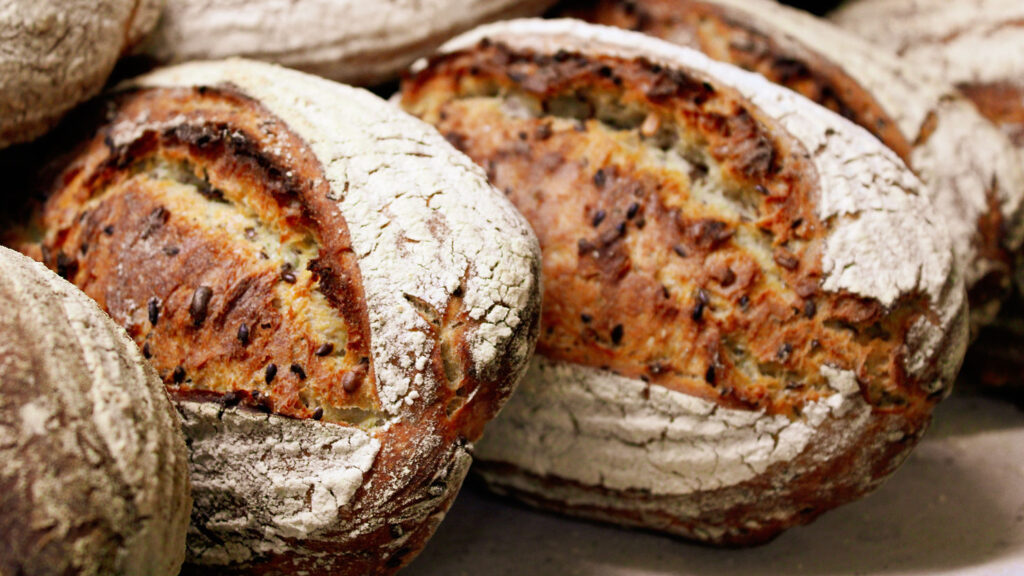
Becoming self-sufficient in flour: producing exceptional flour
Producing your own flour means choosing to stand out from the crowd by choosing an exceptional flour. White flour is finding its way less and less into consumers’ diets. Little by little, consumers are turning more and more to products that combine nutritional qualities with taste.
There are basically two schools of thought on the market
- Flour mills that crush cereals to make white industrial flour
- Flour mills that unroll cereals, to make more complete and nutritious flour
So processing your grain on site is one thing, but turning it into quality flour is a real challenge! Are you looking for a flour mill manufacturer that meets all your requirements?
Let’s take a look at these two schools.
Mills that crush grain
Most of the flour mills we know are stone mills: they crush the grain using a grinding system, enabling you to produce white flour. The reason is simple: to increase yield, the millstones rotate rapidly, heating the grain and oxidising it. The result is white flour of very average quality, and poor nutritionally speaking.
These mills can often produce flour in large quantities, i.e. around 100 kg of flour per hour. As far as taste is concerned, the result is not really up to scratch, and you end up with a flour that doesn’t allow consumers to rediscover the flavours of yesteryear.
On the other hand, the advantage of this type of product may lie in the cost of acquisition: expect to pay around €5,000 for a mill that will give you an output of 100 kg per hour.
The mills that unwind the grain
There are not many professional flour mills on the market that unroll the grain instead of crushing it.

The Astrié mill allows you to do this. So it’s a great option if you want to buy a mill to process your cereals on your own premises.
Manufacturer of quality flour mills
Ici, ce qui va vraiment faire toute la différence, c’est la qualité de la farine produite. Fini la farine blanche : en déroulant la graine, on garde tous les nutriments, tous les minéraux et les protéines du produit. Vous produisez donc une farine T80, T110 et T130, plus digeste, et qui propose un goût inégalé. Pour une farine de qualité, le moulin Astrié représente la meilleure option.
Here, what really makes all the difference is the quality of the flour produced. No more white flour: by unrolling the seed, you retain all the nutrients, minerals and proteins in the product. The result is T80, T110 and T130 flour, which is easier to digest and has an unrivalled taste. For quality flour, the Astrié mill is the best option.

If you want to produce gluten-free flour, this is the type of professional mill you need to use!
An attractive return
Do you want to produce better-quality flour while enjoying a high level of yield? The Astrié mill is ideal. Thanks to the various sizes of grinding wheel available, you can produce between 15 and 30 kilos of flour per hour.
The small millstone, 50 cm in diameter, allows you to produce 15 kilos of flour per hour. With the extraction and bagging systems on the small models, you can produce continuously, so your mill never stops being fed: in 24 hours, you can produce 300 kilos of flour, or 6 tonnes of flour a month.
If you need to produce more, the output can be doubled with the large Astrié mill: its 1m-diameter grinding wheel allows you to produce 30 kilos of flour per hour, or 12 tonnes per month.
Sidobre granite
If you want to buy a genuine Astrié mill, be careful about the stone used to make the millstones. Astrié flour mills must be made from Sidobre granite: it is the texture of this stone, and only this stone, that allows the cereals to be unrolled, rather than crushed, so that they retain all their nutritional properties.

Spelt, wheat, buckwheat, soft wheat, oats, rye flour, maize flour, durum wheat: as long as the grains are dry enough, you can produce any type of flour, which is a huge advantage! The field of possibilities is wide open for you to produce wholemeal bread, biscuits, crêpes and other tasty pastries that will make all the difference to your customers!

It’s up to you to make your choice, depending on your budget, the yield you need and the quality of flour you want to produce. If you want a high yield but a flour with few nutritional benefits, choose a traditional stone mill. If, on the other hand, you want to opt for quality, and put nutrients and taste back at the heart of your product, then the Astrié mill is the one for you. To help you make the right choice, follow our step-by-step guide!


